Econometric Tools for Macroeconomic Forecasting and Simulation
The aim of this research group is to enhance research on, and development, implementation, evaluation, and application of quantitative macroeconometric models for forecasting and analysing aggregate economic fluctuations and developments. Research in this group contributes to the econometric foundation and the methodological improvements of the IWH forecasts. During the last years, the IWH has highly specialised in macroeconomic modelling, both for flash estimates and medium-term projections. Furthermore, this group conducts comprehensive empirical analysis and develops econometric tools that are used for third-party funded projects. In the last years, particular models have been developed for e.g. Volkswagen Financial Services AG and for GIZ. The research group contributed in particular on macroeconomic modelling for ministries in Kyrgyzstan and Tajikistan as well as for the institute of forecasting and macroeconomic research (IFMR) Uzbekistan.
IWH Data Project: IWH Real-time Database
Research Cluster
Economic Dynamics and StabilityYour contact

Mitglied - Department Macroeconomics
EXTERNAL FUNDING
07.2022 ‐ 12.2026
Evaluation of the InvKG and the federal STARK programme
German Federal Ministry for Economic Affairs and Climate Action
On behalf of the Federal Ministry of Economics and Climate Protection, the IWH and the RWI are evaluating the use of the approximately 40 billion euros the federal government is providing to support the coal phase-out regions..
10.2019 ‐ 01.2023
Climate Resilient Economic Development
Deutsche Gesellschaft für Internationale Zusammenarbeit (GIZ) GmbH
Climate change has a substantial impact on economic growth and a country’s development. This increases the need for reliable and viable approaches to assessing the impact of climate risks and potential adaptation scenarios. Political decision-makers in ministries of planning and economy need sound forecasts in order to design and finance adequate economic policy instruments and actively to take countermeasures. In the pilot countries (Georgia, Kazakhstan and Vietnam), climate risk is included in macroeconomic modelling, enabling the results to be integrated into the policy process so as to facilitate adapted economic planning. The IWH team is responsible for macroeconomic modelling in Vietnam.
05.2020 ‐ 09.2023
ENTRANCES: Energy Transitions from Coal and Carbon: Effects on Societies
European Commission
ENTRANCES aims at examining the effects of the coal phase-out in Europe. How does the phase-out transform society – and what can politics do about it?
This project has received funding from the European Union’s Horizon 2020 research and innovation programme under grant agreement No 883947.
01.2018 ‐ 12.2023
EuropeAid (EU Framework Contract)
European Commission
07.2016 ‐ 12.2018
Climate Protection and Coal Phaseout: Political Strategies and Measures up to 2030 and beyond
Umweltbundesamt (UBA)
01.2017 ‐ 12.2017
Support to Sustainable Economic Development in Selected Regions of Uzbekistan
Deutsche Gesellschaft für Internationale Zusammenarbeit (GIZ) GmbH
01.2017 ‐ 12.2017
Short-term Macroeconomic Forecasting Model in Ministry of Economic Development and Trade of Ukraine
Deutsche Gesellschaft für Internationale Zusammenarbeit (GIZ) GmbH
01.2016 ‐ 12.2017
Development of analytical tools based on Input-Output table
Deutsche Gesellschaft für Internationale Zusammenarbeit (GIZ) GmbH
The aim of the project was the development of an analytical tool to assess the gains and losses of possible state programs supporting the development of the private sector of the Tajik economy.
11.2015 ‐ 12.2016
Employment and Development in the Republic of Uzbekistan
Deutsche Gesellschaft für Internationale Zusammenarbeit (GIZ) GmbH
Support to sustainable economic development in selected regions of Uzbekistan
05.2016 ‐ 05.2016
Framework and Finance for Private Sector Development in Tajikistan
Deutsche Gesellschaft für Internationale Zusammenarbeit (GIZ) GmbH
02.2016 ‐ 04.2016
Macroeconomic Reforms and Green Growth - Assessment of economic modelling capacity in Vietnam
Deutsche Gesellschaft für Internationale Zusammenarbeit (GIZ) GmbH
Refereed Publications
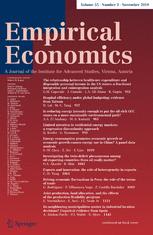
Bottom-up or Direct? Forecasting German GDP in a Data-rich Environment
in: Empirical Economics, No. 2, 2018
Abstract
In this paper, we investigate whether there are benefits in disaggregating GDP into its components when nowcasting GDP. To answer this question, we conduct a realistic out-of-sample experiment that deals with the most prominent problems in short-term forecasting: mixed frequencies, ragged-edge data, asynchronous data releases and a large set of potential information. We compare a direct leading indicator-based GDP forecast with two bottom-up procedures—that is, forecasting GDP components from the production side or from the demand side. Generally, we find that the direct forecast performs relatively well. Among the disaggregated procedures, the production side seems to be better suited than the demand side to form a disaggregated GDP nowcast.
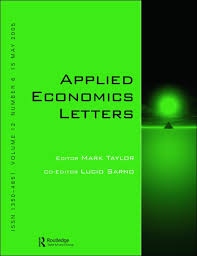
The European Refugee Crisis and the Natural Rate of Output
in: Applied Economics Letters, No. 16, 2017
Abstract
The European Commission follows a harmonized approach for calculating structural (potential) output for EU member states that takes into account labour as an important ingredient. This article shows how the recent huge migrants’ inflow to Europe affects trend output. Due to the fact that the immigrants immediately increase the working population but effectively do not enter the labour market, we illustrate that the potential output is potentially upward biased without any corrections. Taking Germany as an example, we find that the average medium-term potential growth rate is lower if the migration flow is modelled adequately compared to results based on the unadjusted European Commission procedure.

Impulse Response Analysis in a Misspecified DSGE Model: A Comparison of Full and Limited Information Techniques
in: Applied Economics Letters, No. 3, 2016
Abstract
In this article, we examine the effect of estimation biases – introduced by model misspecification – on the impulse responses analysis for dynamic stochastic general equilibrium (DSGE) models. Thereby, we use full and limited information estimators to estimate a misspecified DSGE model and calculate impulse response functions (IRFs) based on the estimated structural parameters. It turns out that IRFs based on full information techniques can be unreliable under misspecification.
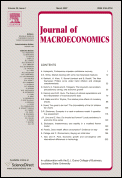
Effects of Incorrect Specification on the Finite Sample Properties of Full and Limited Information Estimators in DSGE Models
in: Journal of Macroeconomics, June 2016
Abstract
In this paper we analyze the small sample properties of full information and limited information estimators in a potentially misspecified DSGE model. Therefore, we conduct a simulation study based on a standard New Keynesian model including price and wage rigidities. We then study the effects of omitted variable problems on the structural parameter estimates of the model. We find that FIML performs superior when the model is correctly specified. In cases where some of the model characteristics are omitted, the performance of FIML is highly unreliable, whereas GMM estimates remain approximately unbiased and significance tests are mostly reliable.
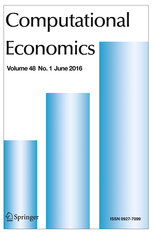
Testing for Structural Breaks at Unknown Time: A Steeplechase
in: Computational Economics, No. 1, 2013
Abstract
This paper analyzes the role of common data problems when identifying structural breaks in small samples. Most notably, we survey small sample properties of the most commonly applied endogenous break tests developed by Brown et al. (J R Stat Soc B 37:149–163, 1975) and Zeileis (Stat Pap 45(1):123–131, 2004), Nyblom (J Am Stat Assoc 84(405):223–230, 1989) and Hansen (J Policy Model 14(4):517–533, 1992), and Andrews et al. (J Econ 70(1):9–38, 1996). Power and size properties are derived using Monte Carlo simulations. We find that the Nyblom test is on par with the commonly used F type tests in a small sample in terms of power. While the Nyblom test’s power decreases if the structural break occurs close to the margin of the sample, it proves far more robust to nonnormal distributions of the error term that are found to matter strongly in small samples although being irrelevant asymptotically for all tests that are analyzed in this paper.
Working Papers
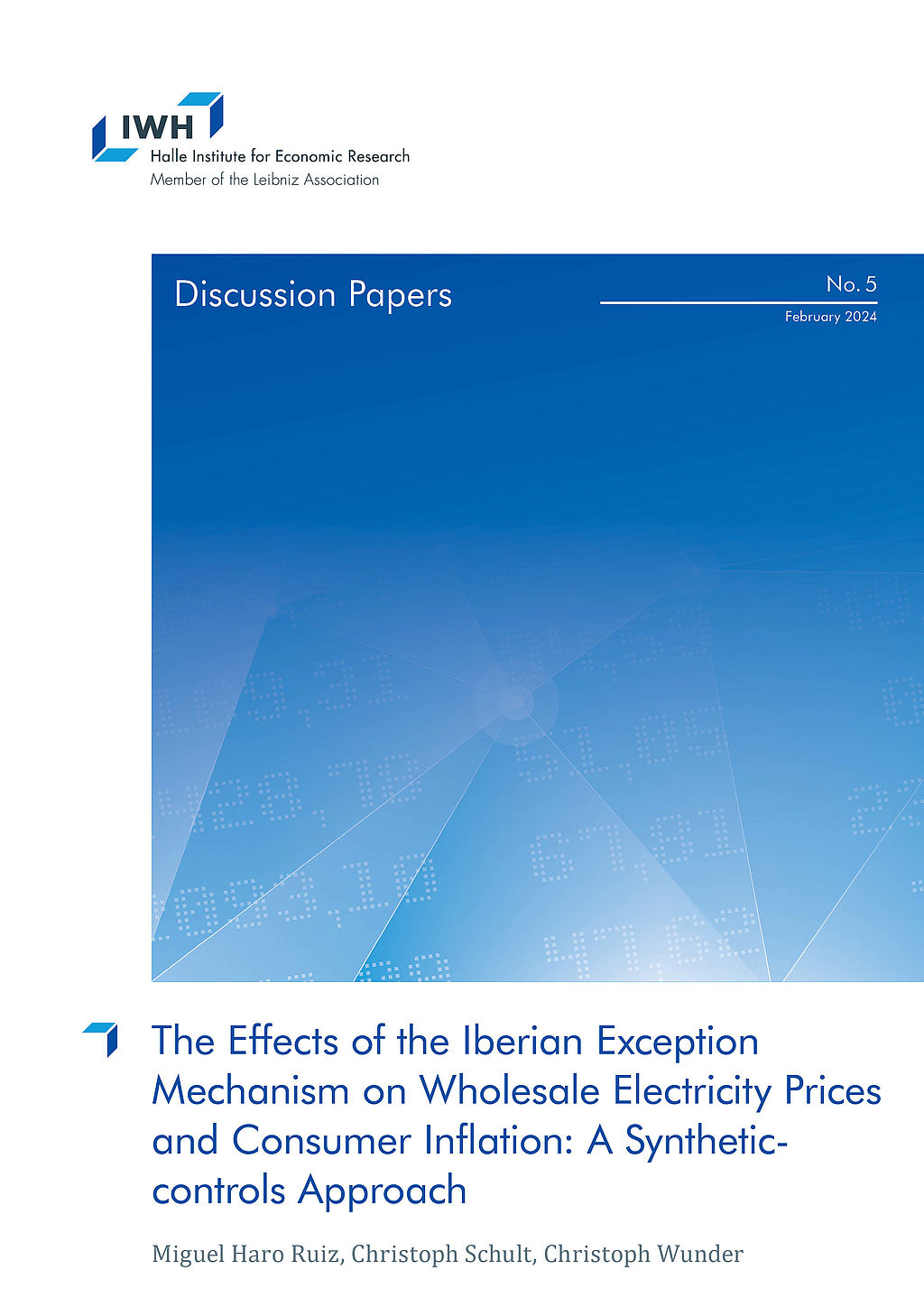
The Effects of the Iberian Exception Mechanism on Wholesale Electricity Prices and Consumer Inflation: A Synthetic-controls Approach
in: IWH Discussion Papers, No. 5, 2024
Abstract
This study employs synthetic control methods to estimate the effect of the Iberian exception mechanism on wholesale electricity prices and consumer inflation, for both Spain and Portugal. We find that the intervention led to an average reduction of approximately 40% in the spot price of electricity between July 2022 and June 2023 in both Spain and Portugal. Regarding overall inflation, we observe notable differences between the two countries. In Spain, the intervention has an immediate effect, and results in an average decrease of 3.5 percentage points over the twelve months under consideration. In Portugal, however, the impact is small and generally close to zero. Different electricity market structures in each country are a plausible explanation.
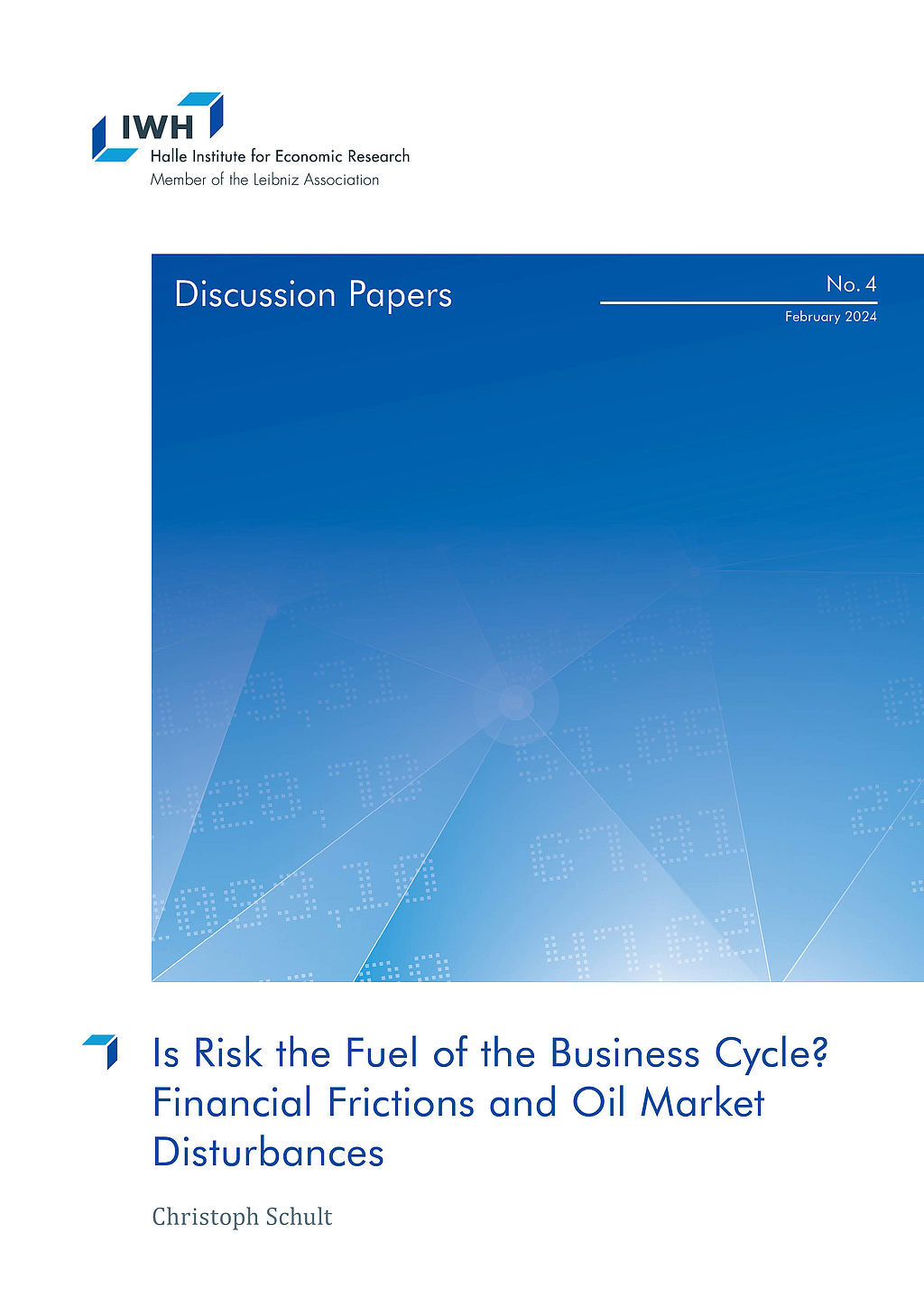
Is Risk the Fuel of the Business Cycle? Financial Frictions and Oil Market Disturbances
in: IWH Discussion Papers, No. 4, 2024
Abstract
I estimate a dynamic stochastic general equilibrium (DSGE) model for the United States that incorporates oil market shocks and risk shocks working through credit market frictions. The findings of this analysis indicate that risk shocks play a crucial role during the Great Recession and the Dot-Com bubble but not during other economic downturns. Credit market frictions do not amplify persistent oil market shocks. This result holds as long as entry and exit rates of entrepreneurs are independent of the business cycle.
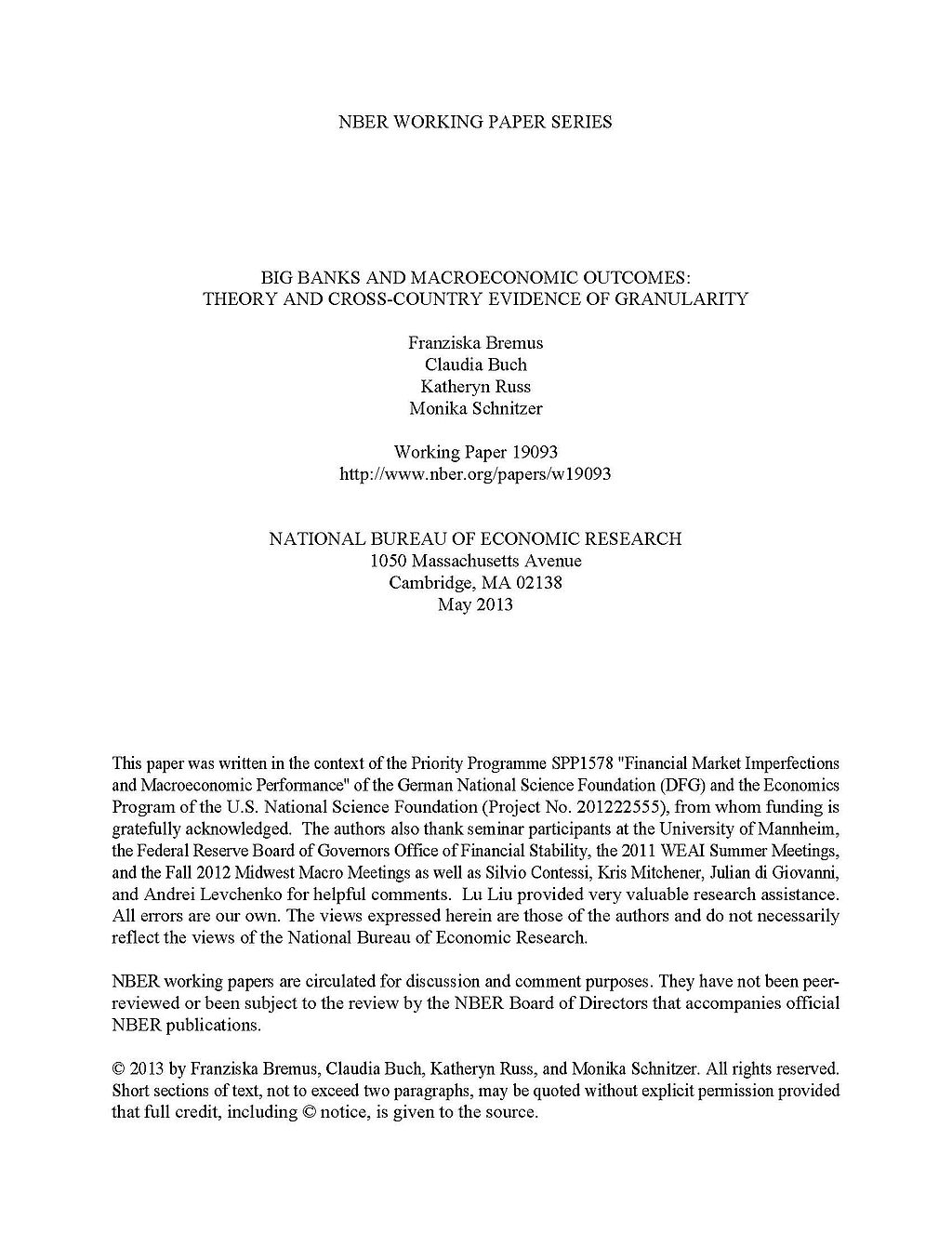
Expectations, Infections, and Economic Activity
in: NBER Working Paper, No. 27988, April 2022
Abstract
The Covid epidemic had a large impact on economic activity. In contrast, the dramatic decline in mortality from infectious diseases over the past 120 years had a small economic impact. We argue that people's response to successive Covid waves helps reconcile these two findings. Our analysis uses a unique administrative data set with anonymized monthly expenditures at the individual level that covers the first three Covid waves. Consumer expenditures fell by about the same amount in the first and third waves, even though the risk of getting infected was larger in the third wave. We find that people had pessimistic prior beliefs about the case-fatality rates that converged over time to the true case-fatality rates. Using a model where Covid is endemic, we show that the impact of Covid is small when people know the true case-fatality rate but large when people have empirically-plausible pessimistic prior beliefs about the case-fatality rate. These results reconcile the large economic impact of Covid with the small effect of the secular decline in mortality from infectious diseases estimated in the literature.
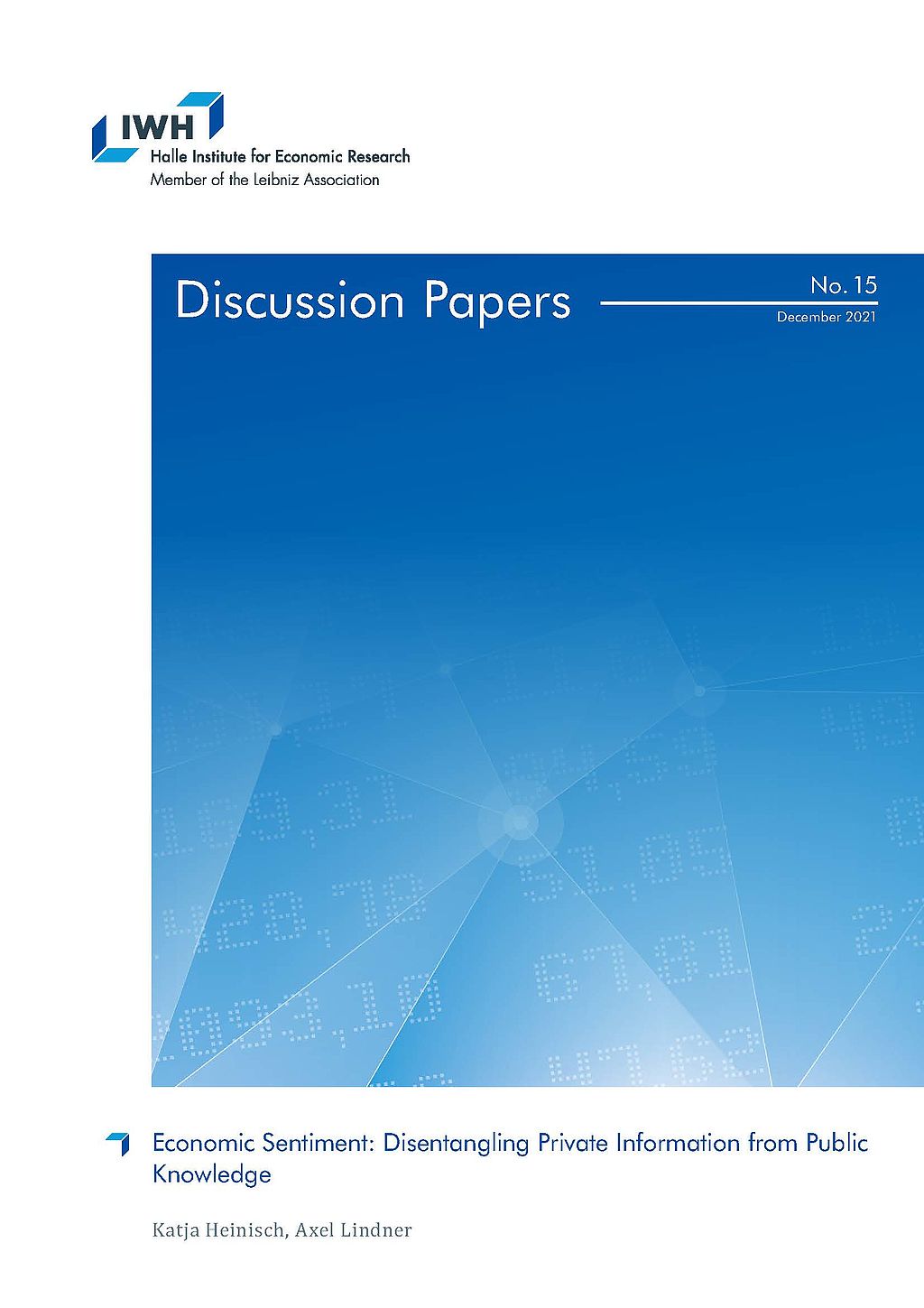
Economic Sentiment: Disentangling Private Information from Public Knowledge
in: IWH Discussion Papers, No. 15, 2021
Abstract
This paper addresses a general problem with the use of surveys as source of information about the state of an economy: Answers to surveys are highly dependent on information that is publicly available, while only additional information that is not already publicly known has the potential to improve a professional forecast. We propose a simple procedure to disentangle the private information of agents from knowledge that is already publicly known for surveys that ask for general as well as for private prospects. Our results reveal the potential of our proposed technique for the usage of European Commissions‘ consumer surveys for economic forecasting for Germany.
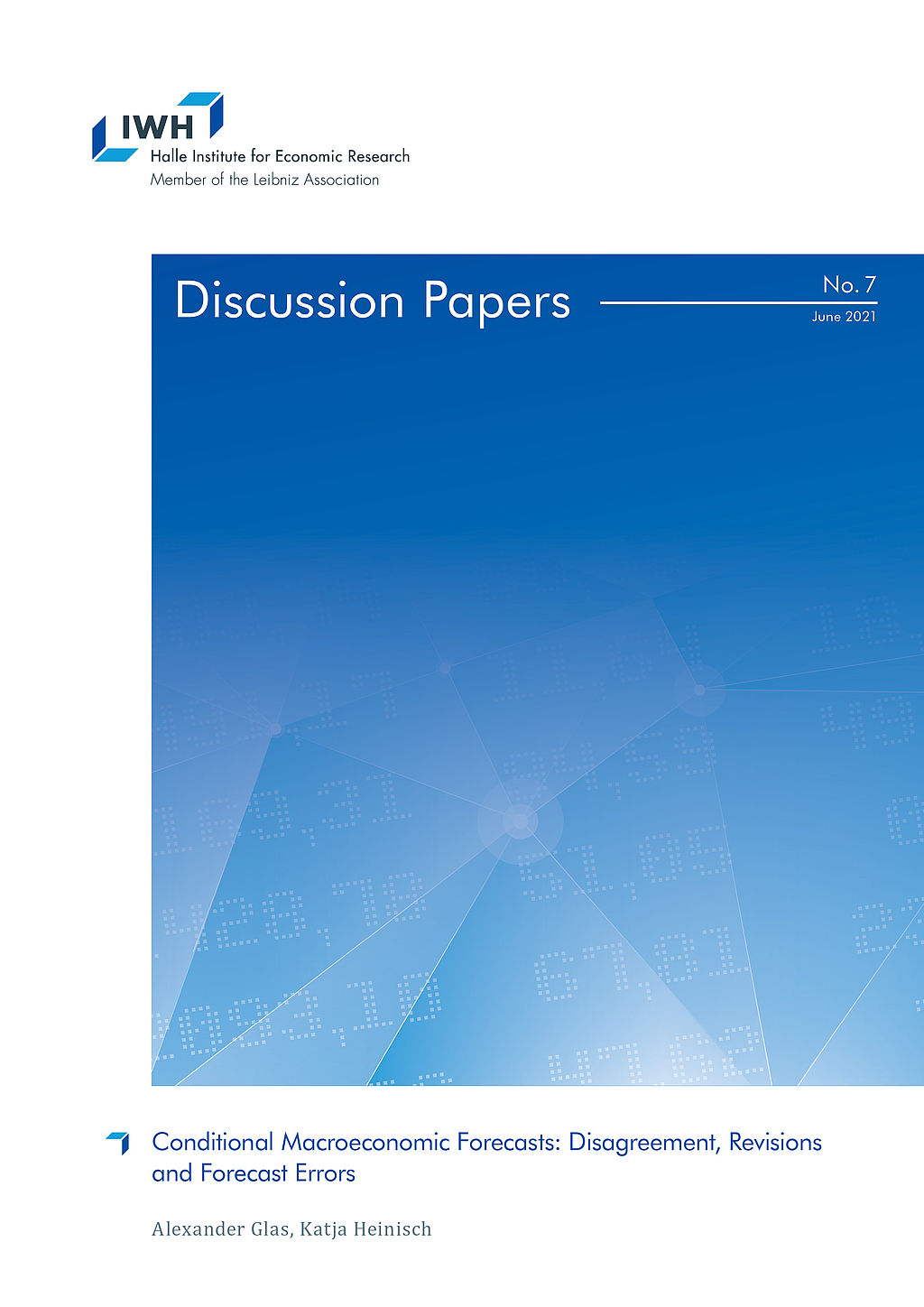
Conditional Macroeconomic Forecasts: Disagreement, Revisions and Forecast Errors
in: IWH Discussion Papers, No. 7, 2021
Abstract
Using data from the European Central Bank‘s Survey of Professional Forecasters, we analyse the role of ex-ante conditioning variables for macroeconomic forecasts. In particular, we test to which extent the heterogeneity, updating and ex-post performance of predictions for inflation, real GDP growth and the unemployment rate are related to assumptions about future oil prices, exchange rates, interest rates and wage growth. Our findings indicate that inflation forecasts are closely associated with oil price expectations, whereas expected interest rates are used primarily to predict output growth and unemployment. Expectations about exchange rates and wage growth also matter for macroeconomic forecasts, albeit less so than oil prices and interest rates. We show that survey participants can considerably improve forecast accuracy for macroeconomic outcomes by reducing prediction errors for external conditions. Our results contribute to a better understanding of the expectation formation process of experts.

















